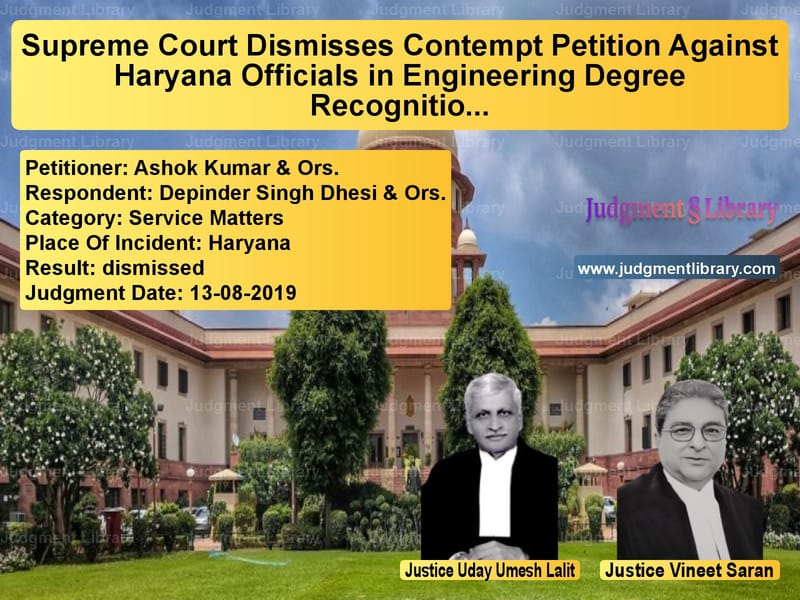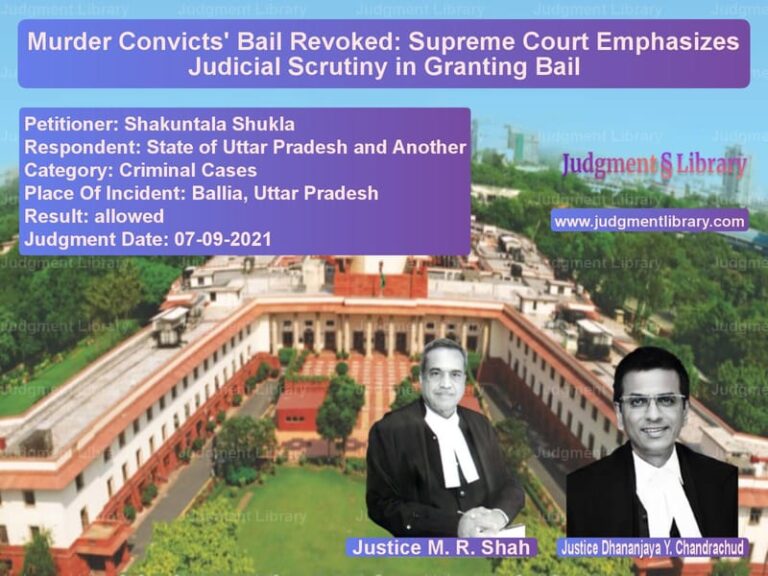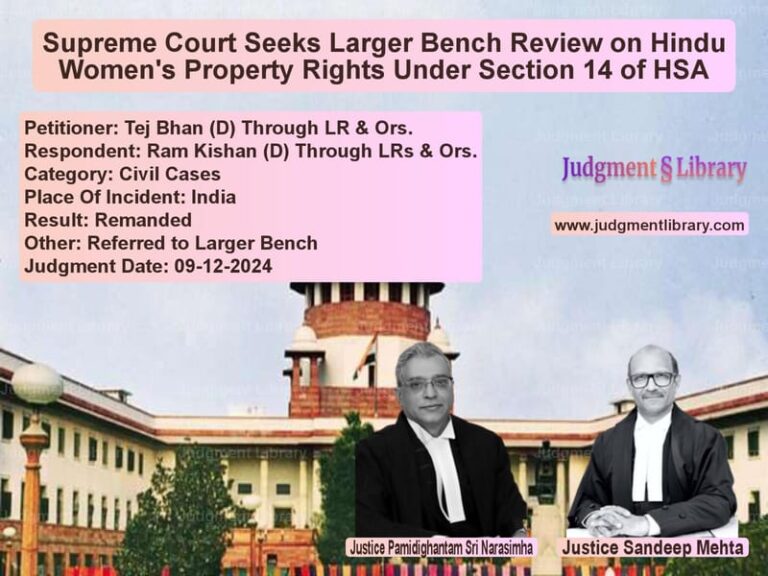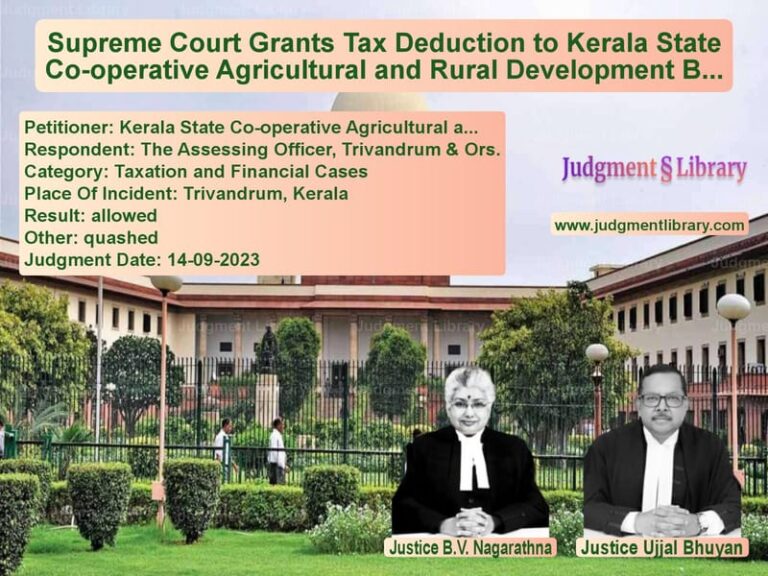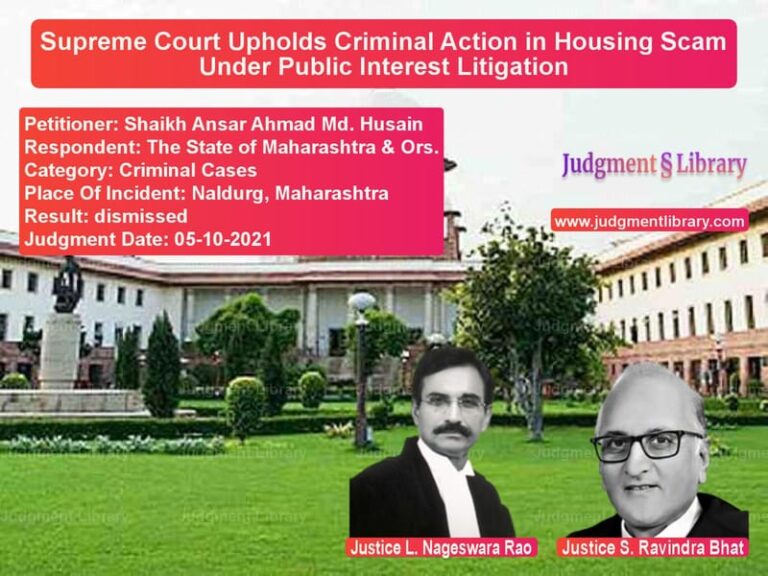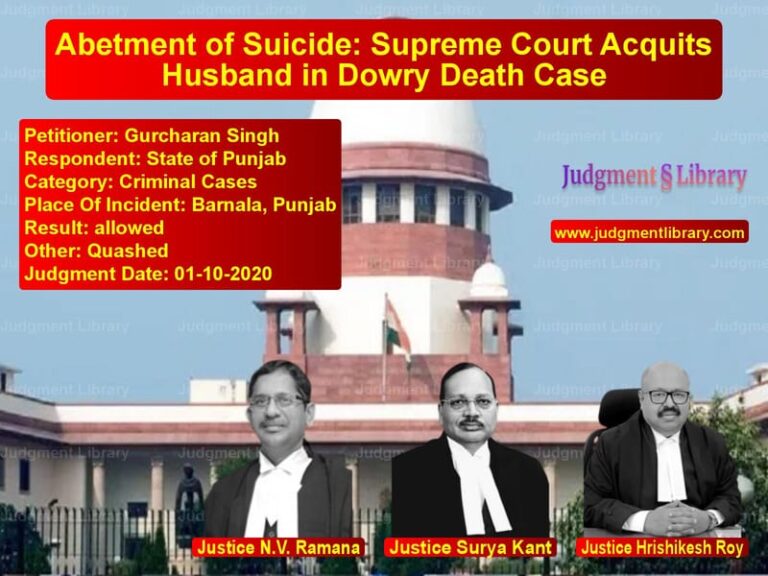Supreme Court Dismisses Contempt Petition Against Haryana Officials in Engineering Degree Recognition Case
The Supreme Court of India, in its judgment dated August 13, 2019, in the case of Ashok Kumar & Ors. v. Depinder Singh Dhesi & Ors., dismissed a contempt petition filed by Junior Engineers against officials of the Haryana Government. The petition alleged non-compliance with the Supreme Court’s 2017 ruling that restored the validity of engineering degrees obtained through distance education mode between 2001-2005, subject to an examination.
Background of the Case
The case revolved around the recognition of engineering degrees awarded through distance education by deemed universities. In 2017, the Supreme Court had ruled that students enrolled between 2001-2005 in such programs must clear an AICTE-supervised examination to retain their degrees and professional benefits.
The petitioners, who were working as Junior Engineers in Haryana’s Public Health Engineering Department, successfully passed the AICTE examination in June 2018. However, their requests for promotion based on their engineering degrees were ignored, leading them to file a contempt petition against the state government officials.
Petitioners’ Arguments
The petitioners contended:
- Non-Implementation of the 2017 Judgment: Despite passing the AICTE exam, their degrees were not recognized for promotion purposes.
- Unfair Discrimination: Junior Engineers with regular engineering degrees were considered for promotions, while those who obtained degrees via distance mode and passed the AICTE test were ignored.
- Violation of Supreme Court Orders: The officials deliberately delayed action on their requests, violating the Supreme Court’s directions.
Respondents’ Arguments
The Haryana government officials defended their stance, arguing:
- Government Policy on Higher Education: As per the state’s policy, employees required permission before enrolling in higher education programs.
- Promotion Policy Distinctions: The government had never recognized distance education engineering degrees for promotions before the 2017 ruling.
- Legal Opinion from Advocate General: The government sought legal advice, which indicated that the Supreme Court judgment did not automatically grant promotion rights.
Supreme Court’s Observations
The Supreme Court, led by Justices Uday Umesh Lalit and Vineet Saran, made the following key observations:
1. No Wilful Disobedience of Court Orders
The Court held that the respondents had not acted in contempt, as they sought legal clarification before taking action.
“There was no deliberate or wilful violation of the Court’s orders. The respondents acted prudently by seeking legal advice.”
2. Promotion Not an Automatic Right
The Court clarified that while degrees were restored, promotions were subject to government policies.
“The ruling restored degrees but did not mandate automatic promotions for degree holders.”
3. Doctrine of Laches Applies
The Court noted that the petitioners had accepted government service under existing policies and could not claim retrospective promotions.
“Employees who enroll in higher education programs without prior approval cannot claim automatic benefits later.”
4. Contempt Not the Right Remedy
The Court advised the petitioners to seek relief through service law tribunals instead of contempt proceedings.
“Service-related grievances should be addressed through appropriate forums, not contempt petitions.”
Final Verdict
The Supreme Court dismissed the contempt petition and imposed a fine of Rs. 5,000 on each petitioner.
Impact of the Judgment
This ruling reinforces:
- Strict Interpretation of Contempt Law: Contempt jurisdiction is not meant for service-related disputes.
- Limited Scope of Judicial Orders: Court orders do not automatically alter government employment policies.
- Proper Channels for Service Disputes: Employees must approach administrative tribunals for promotion-related grievances.
Conclusion
The Supreme Court’s decision in Ashok Kumar v. Depinder Singh Dhesi underscores the importance of using the right legal channels for employment-related disputes. While the ruling validated distance education degrees, it did not override government policies on promotions, reinforcing that service matters must be pursued through appropriate administrative processes.
Petitioner Name: Ashok Kumar & Ors..Respondent Name: Depinder Singh Dhesi & Ors..Judgment By: Justice Uday Umesh Lalit, Justice Vineet Saran.Place Of Incident: Haryana.Judgment Date: 13-08-2019.
Don’t miss out on the full details! Download the complete judgment in PDF format below and gain valuable insights instantly!
Download Judgment: Ashok Kumar & Ors. vs Depinder Singh Dhesi Supreme Court of India Judgment Dated 13-08-2019.pdf
Direct Downlaod Judgment: Direct downlaod this Judgment
See all petitions in Promotion Cases
See all petitions in Public Sector Employees
See all petitions in Disciplinary Proceedings
See all petitions in Judgment by Uday Umesh Lalit
See all petitions in Judgment by Vineet Saran
See all petitions in dismissed
See all petitions in supreme court of India judgments August 2019
See all petitions in 2019 judgments
See all posts in Service Matters Category
See all allowed petitions in Service Matters Category
See all Dismissed petitions in Service Matters Category
See all partially allowed petitions in Service Matters Category

